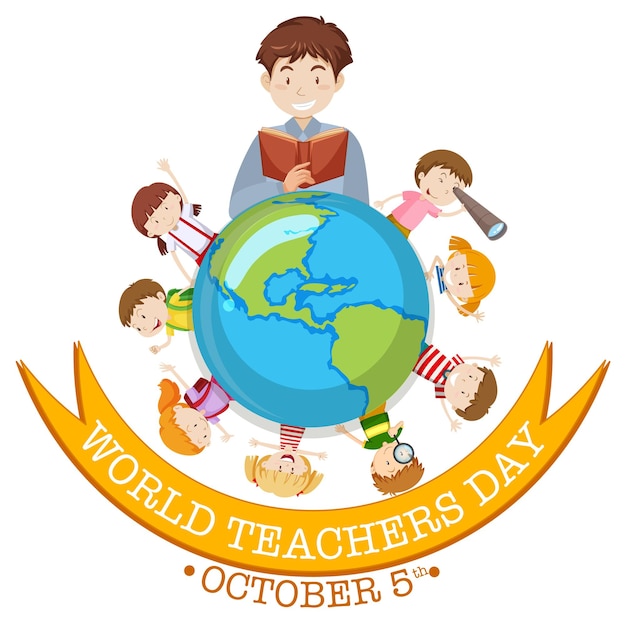World Teachers’ Day is celebrated globally on October 5 every year to honour teachers and recognise their contributions to education and society. The date marks the adoption of the 1966 ILO/UNESCO Recommendation concerning the Status of Teachers, a landmark document defining teachers’ rights and working conditions.
World Teachers’ Day 2025 History and Origin
World Teachers’ Day traces its roots to October 5, 1966, when the International Labour Organization (ILO) and UNESCO adopted the Recommendation concerning the Status of Teachers. This document established global standards for teachers’ responsibilities, preparation, and employment conditions.
The first official World Teachers’ Day was celebrated in 1994, when UNESCO designated October 5 as the annual date to commemorate this milestone. While not a legal document, the 1966 Recommendation serves as a guiding framework for governments to improve teacher training, pay, and professional growth.
Over the years, UNESCO has continued to promote teacher welfare, using the day to raise awareness about issues such as teacher shortages, pay disparities, and professional development needs.
How World Teachers’ Day is Celebrated?
Each year, UNESCO, along with the International Labour Organization (ILO), UNICEF, and Education International, organises global events to highlight the significance of teachers.
Celebrations include:
- National and regional education conferences
- School-level programs and award ceremonies
- Policy discussions on improving teacher support
- Social media campaigns celebrating educators
Since its inception, the day has evolved into a global movement promoting teacher empowerment and quality education.
World Teachers’ Day 2025 Theme: Recasting Teaching as a Collaborative Profession
The theme for 2025, announced by UNESCO, is “Recasting Teaching as a Collaborative Profession.” It focuses on transforming teaching from an isolated role into one that thrives on teamwork and shared learning.
The theme calls for:
- Team-based lesson planning and peer mentoring
- Supportive leadership structures
- Time and incentives for teacher collaboration
- Policy reforms that reward collective success over individual performance
According to UNESCO, fostering collaboration can improve student outcomes, teacher morale, and retention rates. The approach encourages systems that view teachers not as solitary workers but as members of dynamic professional communities.
Significance of the 2025 Theme in India
In India, the theme has special relevance due to large class sizes, syllabus pressure, and limited training opportunities. Emphasising collaboration means creating time for teachers to plan together and establishing district-level mentorship centres for continued professional development.
Educational experts note that true collaboration requires structural reforms, not just workshops. Sustained support networks can enhance both teaching quality and teacher satisfaction.
India’s Own Teachers’ Day: September 5
India celebrates its national Teachers’ Day on September 5 every year, marking the birthday of Dr Sarvepalli Radhakrishnan, India’s first Vice-President and second President.
When students wished to celebrate his birthday, Radhakrishnan suggested it should be observed as a day to honour all teachers. Since then, September 5 has been celebrated nationwide through cultural programs, award ceremonies, and tributes to educators.
While World Teachers’ Day is a global observance linked to educational policy and rights, India’s Teachers’ Day is a cultural celebration focused on gratitude and respect. Both reinforce the crucial role of teachers in shaping societies.
About Dr Sarvepalli Radhakrishnan
Dr Radhakrishnan was a renowned philosopher, scholar, and educator whose writings on ethics and comparative religion influenced generations. Even as a statesman, he identified himself primarily as a teacher, believing education was key to democratic progress and moral growth. His legacy continues to inspire both national and global celebrations of teaching.


